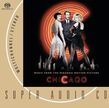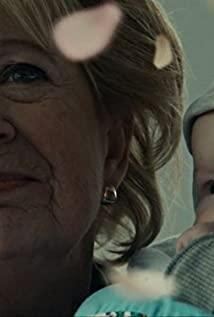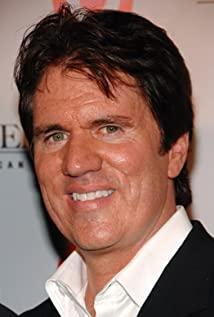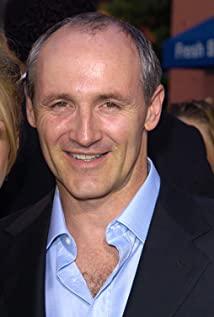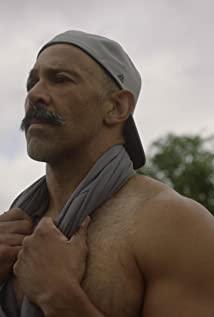"Chicago" is a dark comedy that tells an absurd and thought-provoking story set in the glitz of 1920s Chicago.
After being imprisoned for murder, Rosie and Kelly, two sing-and-dance heroines, use the case to make a big fuss, vying for newspaper headlines and handsome attorney Billy Flynn's Favor, with the help of Billy, they successfully used the media hype to guide the public opinion to their own side, and finally they were both acquitted and formed "Murder Sisters" to become popular stars.
"Chicago" was filmed in 2002 and is also a musical, adapted from the musical "Chicago" of the same name. The film is directed by Rob Marshall and written by Bill Camden, starring Katherine Zeta-Jones, Renee Zellweger and Richard Gere.
On March 23, 2003, at the 75th Academy Awards, "Chicago" won awards including best sound, best editing, best costume design, best art direction, best supporting actress and best picture. It won six awards and became the first musical to win an Oscar since "Oliver" in 1968.
The strong momentum of musicals in business and word of mouth reminds people of its style in the past, so some comments said: musicals will usher in its revival.
The film is set in Chicago in the 1920s, in a society of "magic bullets" (a view that the medium has powerful effects) .
Influenced by the "Yellow News War" at the end of the 19th century, on the basis of sensationalism, the media focused on reporting on crimes, scandals, gossip, divorce and sex issues. At that time, yellow news had quietly become the mainstream of news reporting.
Chicago in the early 20th century was the second largest city in the United States after New York.
Although the U.S. government closed the red light district in order to improve the social atmosphere at the time, and later issued a ban on alcohol, Chicago is still a paradise for jazz, singing and dancing, carnival and sex.
High crime rates also make Chicago a veritable capital of violence.
The Storyline of "Chicago"
The textual narrative art of "Chicago", which is mainly based on characters, can be divided into two clues:
One is "Rosie Line", naive, dreaming of becoming a star - discovering being cheated, committing a crime to murder - entering prison for the first time, seeing the society - cooperating with others, thriving - strategizing and acting skillfully - successful strategy and acquittal.
The film tells the story of Rosie's growth. At first, she just wanted to sing and dance freely on the stage through the network of a man who bought furniture.
Little did she know that this man deceived her just for her beauty, and even beat her up after losing interest in her. In a rage, Rosie chose to kill the man who deceived and toyed with her.
Rosie was subsequently arrested and told that she could be sentenced to hanging.
In prison, she gradually came to know the fraud, greed and corruption in society, and Rosie gradually grew into a person who understood the realistic means of survival.
Using the media and lawyer Billy, who confounds right and wrong, through her hard work, she successfully achieved what she had worked hard to achieve but could not achieve - fame, and finally acquitted.
Although Rosie lost her price after being free, she finally fulfilled her dream of singing and dancing on the stage in the name of her murderer and prison.
The other is the "Kelly Line", which is high above - crisis strikes - jealousy - provocation and frame-up - attitude change - competition and attack - cooperation and win-win.
To be precise, the "Kelly Line" should be the relationship line between Kelly and Rosie.
At the beginning, Kelly was Rosie's idol. She was high above the ground. When she first met, she gave Rosie a disdain with a domineering attitude.
And when Rosie gradually became famous and Billy began to favor Rosie, she felt a crisis, and jealousy began to haunt. Before Rosie held a press conference, Kelly pretended to warn Rosie, but she was actually trying to screw up the reporter. Yes, luckily Billy has enough control over the entire "stage".
When Kelly found that she was powerless to save the whole situation, she began to seek cooperation with Rosie. At this time, the status of the two sides changed, and Kelly became the passive.
At first, Rosie didn't believe in Kelly, but after her acquittal, the two finally turned enemies into friends because of their common dreams and interests.
The Charm of Stage Art in "Chicago"
The genre of the film is a musical, and the most characteristic feature of the film is the musical performance on the stage.
The performance on the stage not only tells the story, but the stage combines a series of audio-visual elements such as lighting, music, dance, color, etc. in the same space.
The film consists of a total of 12 stage performances, each of which is a gorgeous chapter. Director Rob Marshall combines the plot with singing and dancing through editing and ingenious interludes, so that the audience can walk on the road of the plot for a while. On, and wandering in the world of singing and dancing for a while.
It is worth mentioning that almost all the editing of the reality and the stage is done using similarity editing, which is also the reason for the fluent footage of the film.
For example, in the 11th minute and 38th second of the film, the natural transition between the "light" of the torch and the "spotlight" of the stage depends on the similarity of light;
At the 23rd minute and 8th second, the performance of "Prison Tango" was naturally undertaken through the rhythm of the sound of water droplets and footsteps in an extremely quiet environment;
In the 51st minute and 58th second, Rosie's self-report is also connected by the similarity of the "laughter" of the mother in prison and the "laughter" of the audience off the stage.
In stark contrast to the gloomy real world, the narrative song and dance performance scenes in the film are all colorful, enthusiastic, and dynamic stage paradises. contrast.
Let's enjoy several classic stage clips to feel the stage art charm of "Chicago":
Classic One, Prison Tango - A Classic Stage Show
This prison tango is the biggest stage highlight of the whole film.
The rhythm of the sound, the lighting of the stage, and the shocking force of the dance are just right, and the beautiful picture makes people move at will.
With the tick rhythm of the water droplets and the rhythm of the boots, the vocals began to come out rhythmically, "pop, six, squish, uh-uh, cicero, lipschitz", each word came out of different people's mouths, followed by With the footage of these six female murderers.
These six different words are used as the subject words of the six murders to elicit the reasons for each person's crime, and the crime process is performed with different dances.
The tone of the stage is still dazzling red, and the red ribbon (a symbol of blood donation) is now a tool for murder in their hands.
The only difference is the Ukrainian women's performance. First of all, her entire performance is played with white light, and there is a little white in the red bushes, which is very prominent. Second, they both confessed to their murders, and only the foreigner kept asserting his innocence. This also lays the groundwork for the later "death of the innocent".
Throughout the show, the six women's costumes contained elements of restraint, such as stockings and straps.
In the dim light, the visual depression caused by the iron cages renders a gloomy and gloomy tone to the extreme. The gloomy reality is a world bound by reason, order, and ethics.
While in this cage they murdered, they could shout "That is, but it's not a crime, because they are totally to blame!" They danced out their inner anger with a powerful dance.
classic two, marionette
It was originally Rosie's press conference, but it became a puppet show, and the one who controlled the whole performance was Billy, who was given several shots above the stage, smiling evilly.
Then turn the camera to the puppet reporters he was holding in his hands. They were led away obediently by Billy, without the ability to resist.
Of course, Rosie, who was the protagonist, was also one of the many puppets. In fact, what Rosie said was made up by Billy from the very beginning.
With the endorsement of the mainstream media represented by Miss Shanshan, other media have also fallen into it, so the case has attracted more and more attention, and the direction of public opinion has developed in the direction expected by the informant, and the dramatic innocence defense has started from the beginning. It was a big victory.
Classic Three, Famous Show
The drama of the story climaxes again in the final song and dance when Rosie and Carrie agree and finally board the Chicago ballroom for fame.
Let’s first look at the lyrical singing performed by the two of them, which is almost based on Rosie’s real life. Suddenly the lyrical music came to an abrupt end, replaced by jazz music and dance, and then there was a dark humorous prop – the appearance of the gun .
Everyone knows that the two of them killed the man who was sentenced to them with a gun, and now they are not only acquitted, but also become stars in the spotlight, and they also used guns that were dozens of times larger than when they killed them as featured props. Their past crimes were used as gimmicks to enhance their popularity.
In this highly ironic performance, the audience gave their applause "without hesitation".
In fact, the above several stage clips are only representative of the whole film. Others such as Kelly's initial attempt to persuade Rosie to perform with her, Rosie's trial dance and Billy's defense to the judge and the court are all bridges. It is quite artistic and analytical.
Whether it is the use of the camera lens, the arrangement of the scene, the movement of the characters, the coordination of the music and the effect of the lighting, all of them are integrated together to express the theme, bringing the audience a visual impact and auditory shock.
Using audio-visual means to express the story text, the audio-visual language at this time is more powerful than the pure text narration!
Unlike most traditional musicals that show beautiful love themes, "Chicago" integrates murder, repression, fraud, greed, corruption and other elements into this musical, making it innovative and contemporary.
In Chicago in the 1920s, there were nightclub feasting, numb and shameless spectators, the flower of a corrupt prison with "what you pay will be rewarded", Rosie, who had dreams of becoming famous but was smashed by reality, was betrayed by a man and resolutely solved it with violence. The Kelly of the problem, the shaping of each person's distinct personality, the contrast of the film's tones, all reflect the debauchery, flashy restlessness and dark decadence of that era.
The film also seems to have some feminist colors, but it is not entirely feminist. As in the analysis of the tango in prison, their clothes are all restrained. Although they struggle, they still cannot escape the prison cage. After all, It was Billy Flynn, a man, that helped the two protagonists get out of prison and become famous.
Of course, the mass media should more deeply reflect on the media image created by the film, and always remind themselves of their social responsibilities.
This film brings us gorgeous stages and wonderful performances, and at the same time brings musical film, a genre of film creation that integrates technology with art, plot and reality, into our field of vision, and brings it to us in a fresh and lively way. People's visual feast and the impact of the soul.
View more about Chicago reviews




